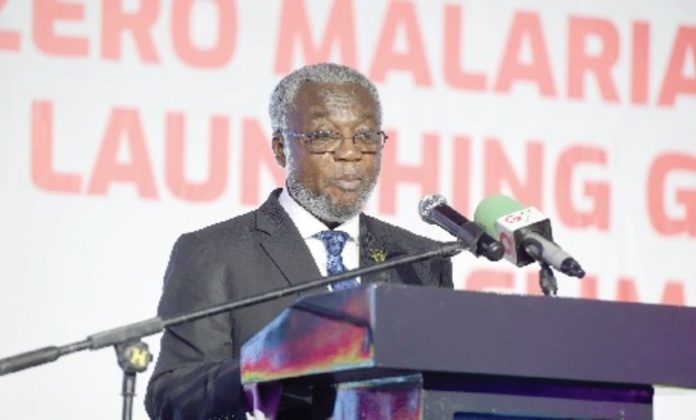A Malaria Elimination Strategic Plan has been launched in Accra, aimed at achieving zero malaria incidence across the country by 2028.
The document was launched on the theme: “Zero malaria starts now — Launching Ghana’s path to elimination”.
President, Nana Addo Dankwa Akufo-Addo, in a speech read on his behalf by the Presidential Advisor on Health, Dr. Anthony Nsiah-Asare, gave an assurance of the government’s commitment to providing resources for the deployment and implementation of all elimination activities to achieve the expected target.
“Through collective efforts, the government, public and private sector and communities at all levels must continue to demonstrate leadership, adopt sustainable approaches and implement malaria elimination interventions,” the President said.
Director-General of the Ghana Health Service (GHS), Dr Patrick Kuma-Aboagye, said the country, upon achievement of its malaria elimination goal would join the 43 countries across the world that had successfully eliminated malaria.
He said two main committees – the Independent National Malaria Elimination Oversight Committee and the National Malaria Elimination Technical Coordination Committee, were to be constituted to drive the elimination agenda.
Programme Manager of the National Malaria Elimination Programme (NMEP), Dr Keziah L. Malm, said malaria was responsible for about 608,000 deaths worldwide in 2022.
The elimination strategy, she said, would target interruption of transmission, zero locally acquired cases and prevention of re-establishment of transmission.
The goal, Dr Malm said, was to reduce malaria mortality by 90 per cent by 2028, reduce malaria case incidence by 50 per cent by 2028, and achieve malaria elimination in 21 districts by 2028.
She, however, said the programme would require about $3 billion for the implementation of the strategy to avert 86 million clinical malaria cases, 4,468 deaths, while Ghana stood an economic benefit of $32 billion.
Dr Malm added that without the interventions, there would be 39 million additional malaria clinical cases, 2,530 deaths and $15 billion in forgone outputs by 2028.

